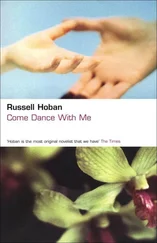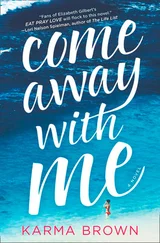Scott MacDonald - A Critical Cinema 2 - Interviews with Independent Filmmakers
Здесь есть возможность читать онлайн «Scott MacDonald - A Critical Cinema 2 - Interviews with Independent Filmmakers» весь текст электронной книги совершенно бесплатно (целиком полную версию без сокращений). В некоторых случаях можно слушать аудио, скачать через торрент в формате fb2 и присутствует краткое содержание. Год выпуска: 1992, ISBN: 1992, Издательство: University of California Press, Жанр: Прочая документальная литература, на английском языке. Описание произведения, (предисловие) а так же отзывы посетителей доступны на портале библиотеки ЛибКат.
- Название:A Critical Cinema 2: Interviews with Independent Filmmakers
- Автор:
- Издательство:University of California Press
- Жанр:
- Год:1992
- ISBN:9780585335100
- Рейтинг книги:3 / 5. Голосов: 1
-
Избранное:Добавить в избранное
- Отзывы:
-
Ваша оценка:
- 60
- 1
- 2
- 3
- 4
- 5
A Critical Cinema 2: Interviews with Independent Filmmakers: краткое содержание, описание и аннотация
Предлагаем к чтению аннотацию, описание, краткое содержание или предисловие (зависит от того, что написал сам автор книги «A Critical Cinema 2: Interviews with Independent Filmmakers»). Если вы не нашли необходимую информацию о книге — напишите в комментариях, мы постараемся отыскать её.
A Critical Cinema 2: Interviews with Independent Filmmakers — читать онлайн бесплатно полную книгу (весь текст) целиком
Ниже представлен текст книги, разбитый по страницам. Система сохранения места последней прочитанной страницы, позволяет с удобством читать онлайн бесплатно книгу «A Critical Cinema 2: Interviews with Independent Filmmakers», без необходимости каждый раз заново искать на чём Вы остановились. Поставьте закладку, и сможете в любой момент перейти на страницу, на которой закончили чтение.
Интервал:
Закладка:
Another Cage idea I picked up on and have used as moral support is that you have to do what you perceive to be the
next
thing. That can get you into the position where you're doing something that nobody's ready for, so that you get dumped on. But it's excusable that way. If it's just an attention-getting process, you deserve oblivion.
MacDonald:
I think the problem with setting oneself up as a pioneer is that so much is always going on in so many places. There are precedents for just about everything.
Breer:
Absolutely. There's always a context for what you do. Ideas float in the air like the flu, and a lot of people get them at the same time. The reason for doing something new is the simple excitement of getting new life out of an old form. And that's enough of a reason.
When I said that I thought that many film artists have gotten fucked, I was referring to the enormous power of consumerism. Take the use of dense groups of different single frames that I came up with in
Recreation
. I've never claimed any firsts for that, and I became aware of
Page 40
precedents maybe subconsciously before and consciously afterward, in Leger and [Dimitri] Kirsanov, and occasionally in [Dziga] Vertov. I've never made any case for that device in itself. It's basically a gimmick, but if you carry a gimmick as far as I did, it becomes a style of sorts. In the sixties I was watching the Smothers Brothers on TV. On one of their shows they introduced some guy who then proceeded to show the history of art in thirty seconds with a single-frame kaleidoscope of images of paintings. Well, I had done that in
Jamestown Baloos,
specifically with art history and a series of images of landscape paintings. It was just one ingredient of
Jamestown Baloos
. But here was the device on the Smothers Brothers show, with some kind of crappy music to go with it. The whole thing was one big joke, and it made me very unhappy. It wasn't so much an envy/greed reaction. It was that the newness of that feeling had been simultaneously introduced and disposed of, totally thrown out the window and on a grand scale. I could never imagine myself reaching all those people across the country with more serious work using that device, so it was depressing.
Recently a case has been made on our behalf. Birgit and Wilhelm Hein put together a show of so-called pioneering films and special effects for the Berlin Film Festival, to show how these special effects have been absorbed. I haven't seen any program notes, but they asked for
Recreation
. I don't know what the other films are.
MacDonald:
Of course, it goes the other way too: a lot of things in avant-garde film were done first by totally anonymous commercial people, who did their work without any long-term recognition either.
Breer:
Good point. I went to an advertising agency one time, and they said, ''We like your stuff a lot, but our clients are very conservative." The guy there cited the case of Len Lye and his little Chrysler film: Lye was given an award for the best advertising film of the year, by whatever society or committee does that, but the award was withdrawn because Chrysler hadn't accepted the ad, which wasn't broadcast and so wasn't eligible for the prize. Lye was very bitter about it. He thought he deserved that award, and then he had to be contemptuous of it at the same time. Lye had had big audiences at the beginning; his films ran in first-run theaters, and then later he had to become this "elitist," far removed from all that.
MacDonald:
On the
Fist Fight
sound track there are voices apparently talking about the Stockhausen performance.
Breer:
I took stuff out of the actual performances; you hear the participants. The voice at the end criticizing the film was an English actor.
Stockhausen hadn't been there for the performances, so he hadn't seen the finished film. Later he came out to my house with Mary
Page 41
Bauermeister (they were married at the time), and he was enthusiastic about the film and claimed to be enthusiastic about the sound track. He said he was inspired to make a new sound track for it by chopping up all of his sound compositions collage-style to fit the film. I was flattered, and we talked a little bit about it, but it never happened. I always wondered whether he just wanted to get rid of that critical voice. He was a famous, impossible egotist, though in spite of that we were friendsalthough I found him intolerable at times: my own egotism versus his, maybe. At the world's fair in Osaka in 1970 he did the German pavilion. We were staying in the same hotel and ran into each other. I described our Pepsi pavilion, with thirty-seven speakers around our dome, and he said he had forty-seven, or whatevermore. It got to be ludicrous, that kind of jockeying for superiority.
MacDonald: 66
seems a logical film to come after
Fist Fight,
which seems almost its opposite.
Fist Fight
seems to have emptied out a whole collage part of you.
Breer:
Exactly. First effulgence, then something dry and astringent. I think that, to survive, an artwork has to have excessive input. You've got to put everything into it each time. You can't ride on past laurels. You've got to start from scratch again and on a tack that'll identify the new thing as clearly different from the old thing, and quite often it is almost the opposite. For
66
I had practically a gimmick: long static shots of slick, crisp imagery, with very short gunbursts of interruption.
I guess you go through stages. First of all, you're worried about your identity as an artist. In a sense you don't know who you are and what you're going to do. After a while you're happy that you've discovered what you can do best and are milking this vein, and then a while after that, you realize you're trapped, and you can't get out no matter how fucking hard you try. I'm in that last stage. But I still try. That's the only thing worth doing. There's no point in repeating myself, so I still try to change. I might use a gimmick to get into another vein, as I did with those three abstract films following
Fist Fight, 66, 69, 70,
and later
77
. In the last few years I've combined things more and more. I no longer do a collage film, then an abstract film, then a collage. These days I might take the middle of an abstract film and turn it into a lyrical landscape film. Who's to say I can't? I'm the boss of my films.
MacDonald:
Individual films also reflect this need for change. For a while,
69
is a consistently hard-edged film; then it shifts into something else.
Breer:
Do you know the joke about the two explorers who get captured by the natives and tied to trees? The chief tells the first one, "You have two choices: death or ru-ru." The explorer thinks a bit and says, "Well, ru-ru." "Wise decision,'' says the chief, who unties him. Then the
Page 42

Successive frames from Breer's 69 (1968).
Page 43
whole tribe beats him up and abuses him sexually and completely destroys him and throws him down dead in front of the other explorer. The chief asks the second explorer which
he
prefers, death or ru-ru? The second explorer is very shaken up by what he's seen and finally says, "Death." And the chief says, "Very wise decisiondeath it isbut
first,
a little ru-ru." I love that joke. In my work there's always a little ru-ru.
Читать дальшеИнтервал:
Закладка:
Похожие книги на «A Critical Cinema 2: Interviews with Independent Filmmakers»
Представляем Вашему вниманию похожие книги на «A Critical Cinema 2: Interviews with Independent Filmmakers» списком для выбора. Мы отобрали схожую по названию и смыслу литературу в надежде предоставить читателям больше вариантов отыскать новые, интересные, ещё непрочитанные произведения.
Обсуждение, отзывы о книге «A Critical Cinema 2: Interviews with Independent Filmmakers» и просто собственные мнения читателей. Оставьте ваши комментарии, напишите, что Вы думаете о произведении, его смысле или главных героях. Укажите что конкретно понравилось, а что нет, и почему Вы так считаете.











